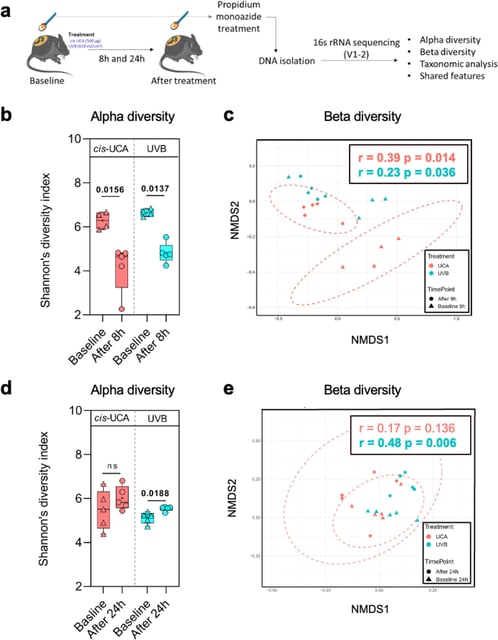Overview
- Researchers identified that certain skin bacteria use the enzyme urocanase to metabolize cis-urocanic acid, a UV-generated molecule with immunosuppressive effects.
- This bacterial metabolism reduces cis-urocanic acid's ability to inhibit immune responses, demonstrating the microbiome's active role in regulating UV-induced immunity.
- The study employed advanced methods, including microbiome sequencing, immunological assays, and gnotobiotic mouse models, to establish a direct link between microbial activity and host immune modulation.
- Findings suggest an interplay between sunscreens, skin microbiota, and UV-generated molecules, influencing immune outcomes at the skin’s surface.
- The research underscores potential clinical applications, such as microbiome-aware sun protection and therapies targeting UV-induced immune changes.
